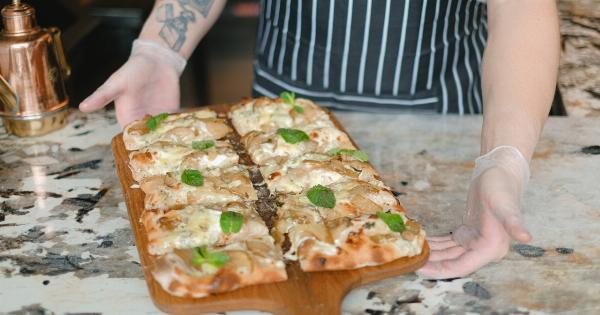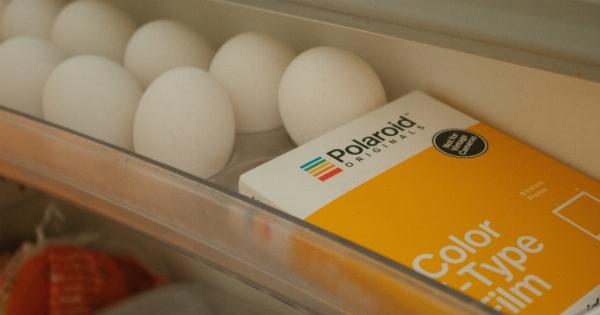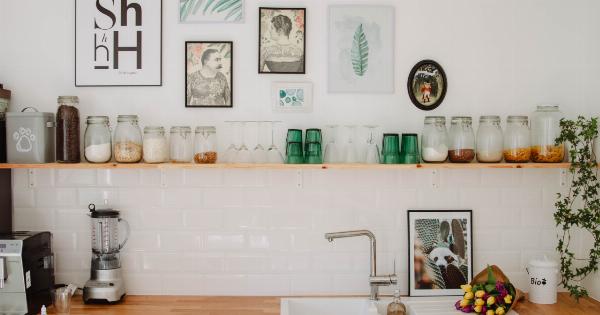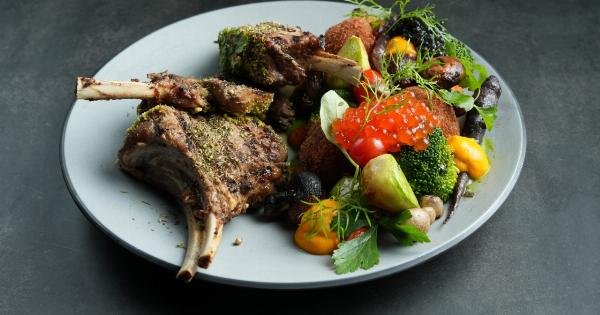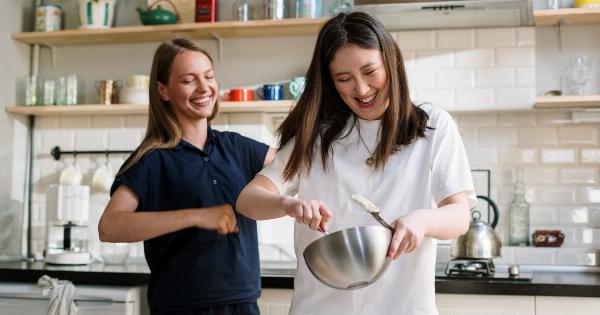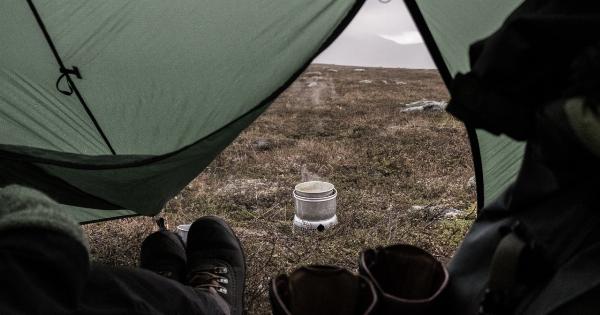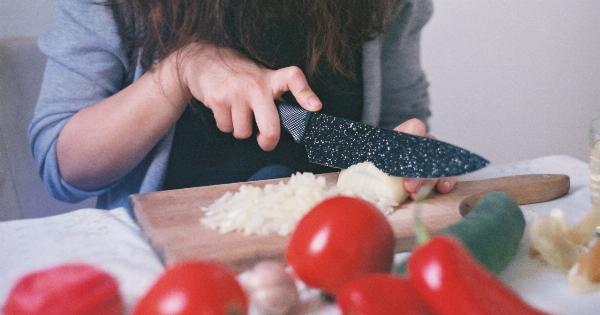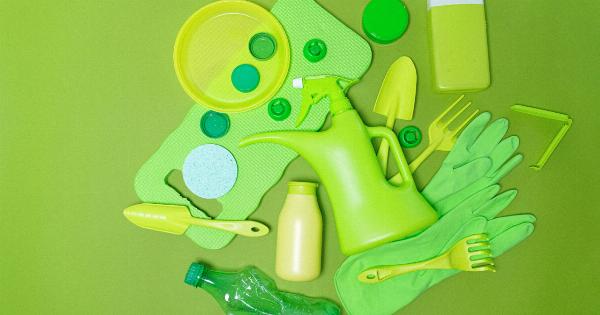Do you often find yourself panicking when you step into the kitchen? Cooking can be a stressful experience, especially when you have guests coming over or are trying out a new recipe.
However, panicking while cooking can lead to mistakes and ruined dishes. In this article, we will explore the five common reasons why people panic while cooking and provide some useful tips on how to stay calm under pressure.
1. Lack of Confidence
One of the primary reasons why people panic while cooking is a lack of confidence in their culinary skills. It can be intimidating to try new recipes or techniques, and the fear of failure often causes panic.
However, the key to staying calm is to build your confidence gradually. Start by mastering basic recipes and techniques before moving on to more complex dishes. As you gain more experience and receive positive feedback, your confidence will naturally grow.
2. Time Constraints
Another reason why people panic while cooking is the pressure of time constraints. This is especially true when preparing a meal for a large number of people or juggling multiple dishes simultaneously.
To combat this, it is crucial to plan your meals in advance and create a schedule. Prepare some ingredients in advance, utilize kitchen gadgets like slow cookers or pressure cookers, and most importantly, prioritize tasks.
By breaking down the cooking process into manageable steps, you can ensure that you are not overwhelmed by time constraints.
3. Fear of Making Mistakes
Many individuals panic while cooking due to the fear of making mistakes. The thought of ruining a dish or serving something inedible can be quite stressful. However, it is important to remember that mistakes are a part of the learning process.
Everyone makes them, including professional chefs. Instead of letting the fear control you, embrace the possibility of making mistakes and view them as opportunities to learn and grow. By adopting this mindset, you will be able to stay calm, even in the face of culinary challenges.
4. Lack of Organization
A disorganized kitchen is a breeding ground for panic. When you’re unable to find the ingredients or tools you need, it can throw you off balance and increase stress levels. To stay calm while cooking, take the time to organize your kitchen.
Create designated spaces for different ingredients, utensils, and cooking equipment. Make a habit of cleaning up as you go and always restock your pantry and fridge regularly. With an organized kitchen, you can efficiently navigate through your cooking process and minimize panic-inducing scenarios.
5. High Expectations
Lastly, high expectations can contribute to panic in the kitchen. When you set unrealistic standards for yourself or strive for perfection, it puts unnecessary pressure on your shoulders.
Remember that cooking is a journey, and not every dish will turn out exactly as planned. Embrace imperfections and focus on the joy of the process rather than the end result. By cultivating a more relaxed attitude towards cooking, you can stay calm under pressure and truly enjoy the culinary experience.
Tips for Staying Calm Under Pressure
Now that we understand the reasons behind panic while cooking, let’s explore some tips to help you stay calm in the kitchen:.
1. Deep Breathing
When you feel yourself getting overwhelmed, take a moment to practice deep breathing. Inhale slowly through your nose and exhale through your mouth. Deep breathing helps calm the nervous system and lowers cortisol levels, reducing stress and panic.
2. Prepare in Advance
Preparation is key to staying calm while cooking. Read the recipe thoroughly, gather all the necessary ingredients, and chop, measure, and prep ingredients in advance. This will save you time and reduce the risk of being caught off guard.
3. Focus on One Task at a Time
Avoid multitasking in the kitchen, as it can lead to confusion and panic. Instead, focus on one task at a time. Complete each step before moving on to the next. This way, you can give your full attention to each task and ensure its success.
4. Practice Makes Perfect
The more you practice cooking, the more comfortable you will become. Dedicate time to regular cooking sessions, try new recipes, and experiment with different techniques. With practice, you will gain confidence and reduce panic-inducing situations.
5. Have a Backup Plan
Always have a backup plan in case something goes wrong. Keep a few simple recipes up your sleeve that you can quickly whip up if needed. This way, you won’t feel completely helpless if a dish doesn’t turn out as planned.
6. Learn from the Experts
Take advantage of the wealth of knowledge available from expert chefs and home cooks alike. Watch cooking shows, read cookbooks, and join cooking classes or online communities.
Learning from others who have mastered the art of staying calm under pressure can be incredibly valuable.
7. Maintain a Positive Mindset
Approach cooking with a positive mindset. Remind yourself that mistakes happen and they are opportunities for growth. Enjoy the process of creating something delicious and focus on the pleasure it brings to yourself and others.
8. Adapt and Improvise
Be flexible in the kitchen and be willing to adapt and improvise if things don’t go according to plan. If you’re missing an ingredient, find a suitable substitute.
If a dish isn’t cooking as expected, adjust the temperature or cooking time. By embracing flexibility, you can navigate through unexpected situations with ease.
9. Delegate Tasks
If you feel overwhelmed with the tasks at hand, don’t hesitate to ask for help. Delegate tasks to family members or friends who are present. This not only lightens your workload but also creates an opportunity for bonding and collaboration.
10. Take Breaks
Lastly, remember to take breaks when needed. If you’re feeling overly stressed or panicked, step away from the kitchen for a few minutes. Take a walk, practice a short mindfulness exercise, or simply relax.
Giving yourself a moment to recharge can do wonders for your overall calmness.
Conclusion
Panic while cooking is a common experience, but there are ways to overcome it. By addressing the root causes of panic and implementing the tips mentioned above, you can cultivate a sense of calmness in the kitchen.
Remember that cooking should be enjoyable and not a source of stress. So, take a deep breath, trust your abilities, and embrace the culinary journey with confidence.


